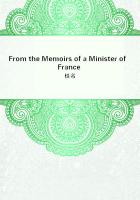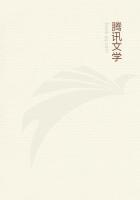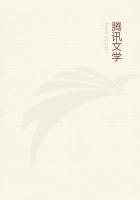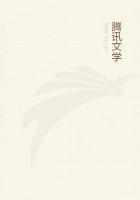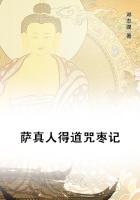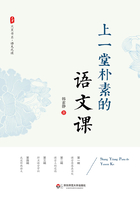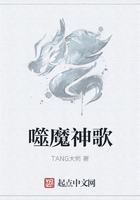Perhaps the first quality in Mr. Stevenson's works, now so many and so various, which strikes a reader, is the buoyancy, the survival of the child in him. He has told the world often, in prose and verse, how vivid are his memories of his own infancy. This retention of childish recollections he shares, no doubt, with other people of genius: for example, with George Sand, whose legend of her own infancy is much more entertaining, and perhaps will endure longer, than her novels. Her youth, like Scott's and like Mr. Stevenson's, was passed all in fantasy: in playing at being some one else, in the invention of imaginary characters, who were living to her, in the fabrication of endless unwritten romances. Many persons, who do not astonish the world by their genius, have lived thus in their earliest youth. But, at a given moment, the fancy dies out of them:
this often befalls imaginative boys in their first year at school.
"Many are called, few chosen"; but it may be said with probable truth, that there has never been a man of genius in letters, whose boyhood was not thus fantastic, "an isle of dreams." We know how Scott and De Quincey inhabited airy castles; and Gillies tells us, though Lockhart does not, that Scott, in manhood, was occasionally so lost in thought, that he knew not where he was nor what he was doing.
The peculiarity of Mr. Stevenson is not only to have been a fantastic child, and to retain, in maturity, that fantasy ripened into imagination: he has also kept up the habit of dramatising everything, of playing, half consciously, many parts, of ****** the world "an unsubstantial fairy place." This turn of mind it is that causes his work occasionally to seem somewhat freakish. Thus, in the fogs and horrors of London, he plays at being an Arabian tale-teller, and his "New Arabian Nights" are a new kind of romanticism--Oriental, freakish, like the work of a changeling. Indeed, this curious genius, springing from a family of Scottish engineers, resembles nothing so much as one of the fairy children, whom the ladies of Queen Proserpina's court used to leave in the cradles of Border keeps or of peasants' cottages. Of the Scot he has little but the power of touching us with a sense of the supernatural, and a decided habit of moralising; for no Scot of genius has been more austere with Robert Burns. On the other hand, one element of Mr.
Stevenson's ethical disquisitions is derived from his dramatic habit. His optimism, his gay courage, his habit of accepting the world as very well worth living in and looking at, persuaded one of his critics that he was a hard-hearted young athlete of iron frame.
Now, of the athlete he has nothing but his love of the open air: it is the eternal child that drives him to seek adventures and to sojourn among beach-combers and savages. Thus, an admiring but far from optimistic critic may doubt whether Mr. Stevenson's content with the world is not "only his fun," as Lamb said of Coleridge's preaching; whether he is but playing at being the happy warrior in life; whether he is not acting that part, himself to himself. At least, it is a part fortunately conceived and admirably sustained:
a difficult part too, whereas that of the pessimist is as easy as whining.
Mr. Stevenson's work has been very much written about, as it has engaged and delighted readers of every age, station, and character.
Boys, of course, have been specially addressed in the books of adventure, children in "A Child's Garden of Verse," young men and maidens in "Virginibus Puerisque,"--all ages in all the curiously varied series of volumes. "Kidnapped" was one of the last books which the late Lord Iddesleigh read; and I trust there is no harm in mentioning the pleasure which Mr. Matthew Arnold took in the same story. Critics of every sort have been kind to Mr. Stevenson, in spite of the fact that the few who first became acquainted with his genius praised it with all the warmth of which they were masters.
Thus he has become a kind of classic in his own day, for an undisputed reputation makes a classic while it lasts. But was ever so much fame won by writings which might be called scrappy and desultory by the advocatus diaboli? It is a most miscellaneous literary baggage that Mr. Stevenson carries. First, a few magazine articles; then two little books of sentimental journeyings, which convince the reader that Mr. Stevenson is as good company to himself as his books are to others. Then came a volume or two of essays, literary and social, on books and life. By this time there could be no doubt that Mr. Stevenson had a style of his own, modelled to some extent on the essayists of the last century, but with touches of Thackeray; with original breaks and turns, with a delicate freakishness, in short, and a determined love of saying things as the newspapers do not say them. All this work undoubtedly smelt a trifle of the lamp, and was therefore dear to some, and an offence to others. For my part, I had delighted in the essays, from the first that appeared in Macmillan's Magazine, shortly after the Franco-German war. In this little study, "Ordered South," Mr.
Stevenson was employing himself in extracting all the melancholy pleasure which the Riviera can give to a wearied body and a mind resisting the clouds of early malady, "Alas, the worn and broken board, How can it bear the painter's dye!
The harp of strained and tuneless chord, How to the minstrel's skill reply!
To aching eyes each landscape lowers, To feverish pulse each gale blows chill, And Araby's or Eden's bowers Were barren as this moorland hill," -wrote Scott, in an hour of malady and depression. But this was not the spirit of "Ordered South": the younger soul rose against the tyranny of the body; and that familiar glamour which, in illness, robs Tintoretto of his glow, did not spoil the midland sea to Mr.
Stevenson. His gallant and cheery stoicism were already with him;and so perfect, if a trifle overstudied, was his style, that one already foresaw a new and charming essayist.

